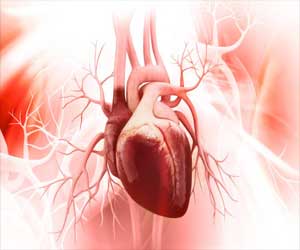- Home
- Editorial
- News
- Practice Guidelines
- Anesthesiology Guidelines
- Cancer Guidelines
- Cardiac Sciences Guidelines
- Critical Care Guidelines
- Dentistry Guidelines
- Dermatology Guidelines
- Diabetes and Endo Guidelines
- Diagnostics Guidelines
- ENT Guidelines
- Featured Practice Guidelines
- Gastroenterology Guidelines
- Geriatrics Guidelines
- Medicine Guidelines
- Nephrology Guidelines
- Neurosciences Guidelines
- Obs and Gynae Guidelines
- Ophthalmology Guidelines
- Orthopaedics Guidelines
- Paediatrics Guidelines
- Psychiatry Guidelines
- Pulmonology Guidelines
- Radiology Guidelines
- Surgery Guidelines
- Urology Guidelines
New risk model predicts mortality for elderly within 6 months of Heart Attack

Researchers from Yale University School of Medicine have developed a novel risk model that predicts mortality for the elderly within 6 months of hospitalization for Acute Myocardial Infarction. The new model includes 4 variables that were not included in prior risk models and accounts for common age-related factors.
Advanced age is a strong determinant of post-AMI mortality in the 6 months after hospital discharge. Whereas older adults often have worse outcomes compared to their younger counterparts, some older patients do very well. Clinical practice guidelines endorse routine use of AMI mortality risk models to assist with decision making after AMI hospitalization, but those risk models were derived from younger cohorts and may not work as well in older adults, who tend to have different risk factors for death.
A new risk model to predict mortality for older adults within 6 months of being hospitalized for acute myocardial infarction (AMI) has been developed. The novel risk model takes into account 15 variables, including 4 that were not considered in prior models: hearing impairment, mobility impairment, weight loss, and lower patient-reported health status. Findings from a cohort study are published in the Annals of Internal Medicine.
The researchers studied 3,006 persons aged 75 years or older who were hospitalized with AMI and discharged alive to develop and evaluate the prognostic utility of a risk model for 6-month post-AMI mortality in this population. Fifteen risk factors were selected for inclusion in the prediction model, including comorbid diseases, laboratory values, in-hospital procedures, and functional impairments. The model considered several factors relevant to older adults that had not been considered in prior AMI risk models. The researchers found that by considering factors such as mobility and sensory impairments, cachexia, and health status, their model had good discrimination, was well-calibrated, and performed better than or as well as existing risk models.
For further reference log on to :
http://annals.org/aim/article/doi/10.7326/M19-0974

Disclaimer: This site is primarily intended for healthcare professionals. Any content/information on this website does not replace the advice of medical and/or health professionals and should not be construed as medical/diagnostic advice/endorsement or prescription. Use of this site is subject to our terms of use, privacy policy, advertisement policy. © 2020 Minerva Medical Treatment Pvt Ltd